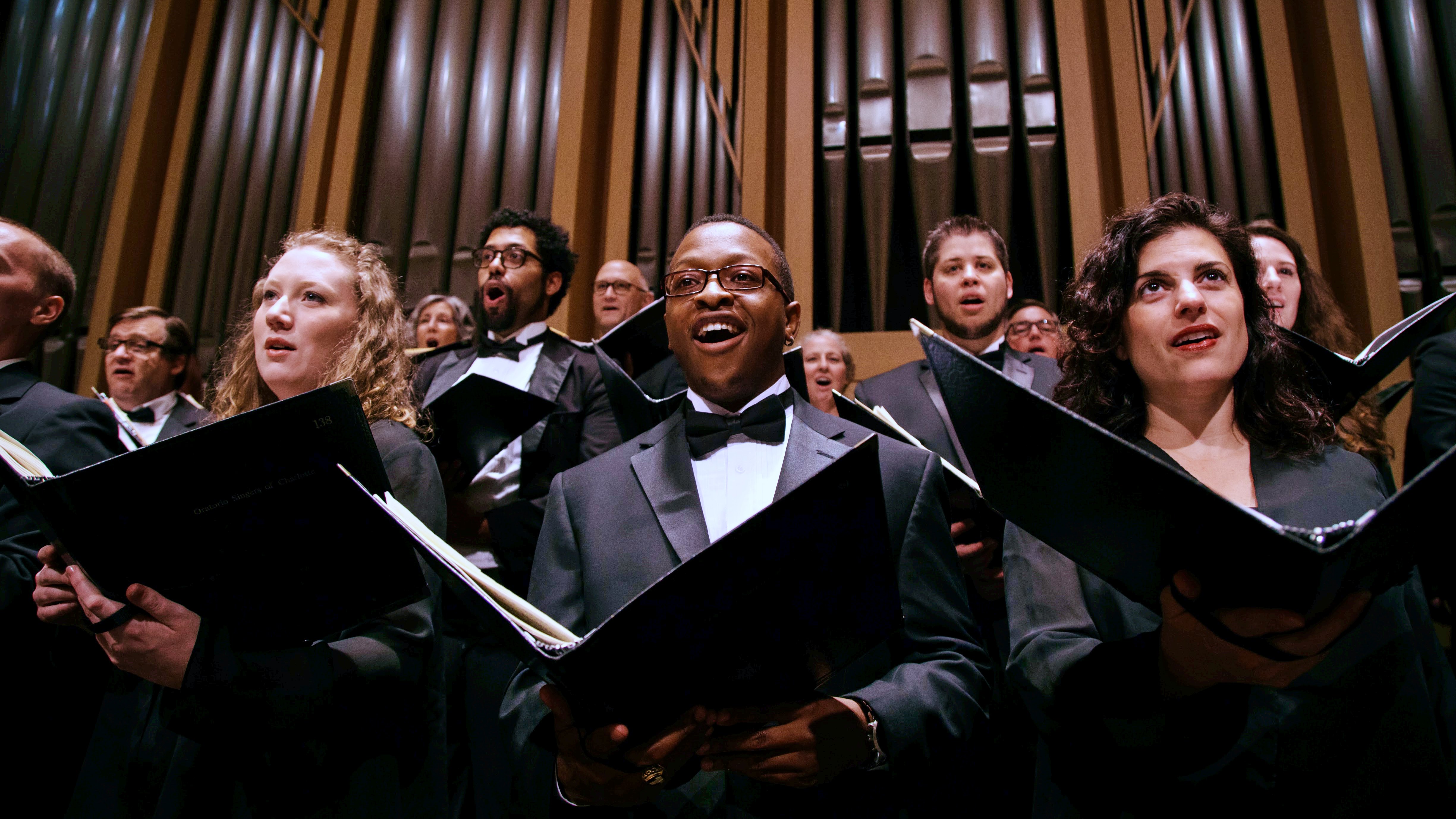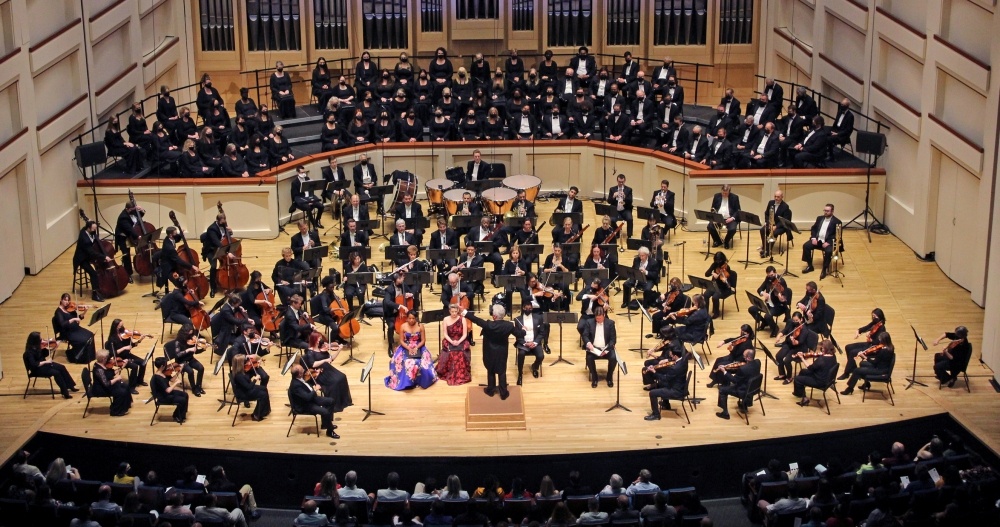
Jessica Cottis returns to the Charlotte Symphony on March 24 & 25 to lead the Orchestra and Charlotte Master Chorale in Mendelssohn's Lobgesang (Hymn of Praise), A Symphony-Cantata. The work premiered in 1840 as the culmination of a festival in Leipzig celebrating the 400th anniversary of Gutenberg's printing press. Robert Schumann attended the premiere and reported on the similarities between Lobgesang and Beethoven's Ninth, "save for the distinguishing difference that the three orchestral movements proceed without any pause between them -- an innovation in the symphonic form. No better form could have been selected for this special purpose."
Here, Charlotte Master Chorale Artistic Director Kenney Potter shares some insight on this incredible work and how the Chorale is preparing.
| For those who are unfamiliar with this work, what should they expect? Triumphant music that expresses the text of Psalm 150 beautifully. The listener will hear first the trombones state the main theme of the work, which is sung with the text of Psalm 150 ("Let everything that has breath, praise the Lord.") What I find interesting is that the trombone is the horn of choice for many German speakers vs. trumpets. A good example is in the Mozart Requiem, where the Tuba Mirum "final days" theme is played by the trombone (this is due to Luther's translation that the trombone signaled the last days). I think it was a purposeful decision to utilize the trombones. |
 |
What do you make of the comparisons between Mendelssohn's Lobgesang to Beethoven's Symphony No. 9?
There are obvious similarities, since the listener will hear three orchestra movements (labeled in traditional format) followed by a choral movement. The difference is that Mendelssohn himself labeled this work as a "symphony-cantata on words of the Holy Bible for soloists, choir, and orchestra."
What does it take to prepare the Charlotte Master Chorale for a work of this scope?
Compared to Beethoven 9, there is more material to prepare. Also, Mendelssohn was more understanding of the voices and their ranges and capabilities. Beethoven is extremely challenging for vocalists due to the extreme ranges, particularly for the sopranos.

What are your favorite moments in the work?
The opening chorus, the utilization and treatment of the "Now Thank We All Our God" tune in the eighth movement, and the final fugue.
What are you looking forward to most about this performance?
It is always a joy to collaborate with the Charlotte Symphony, especially on works that our Charlotte audience needs to hear!
The Charlotte Symphony and Charlotte Master Chorale perform Mendelssohn Hymn of Praise on March 24 & 25 at Belk Theater -- Get tickets today!







